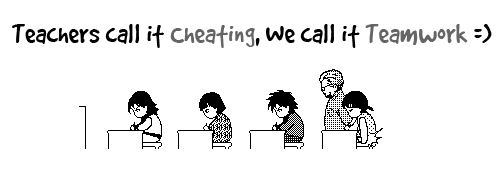An ideal site - TK as the basis for a site based on competent software solutions
An ideal site - TK as the basis for a site based on competent software solutions
Imagine that you, as the owner of a certain company, order the company’s website from the developer's studio. The situation is quite standard and developing according to the standard scenario.
You need:
CMS, written so that even a new office manager can easily understand how and what to do to add a section or article.
The design is such that even from a mobile phone or tablet, the user can see everything that the company offers him. Attractive design, enticing user, convenient.
A user’s account, which allows you to see what he has already done on the site, where he went and what he was interested in. Standard solution for a standard company website.

But if you think about it, why not connect to the creation of the site at least at the writing level of the ToR of the Marketer. After all, he will deal with the development of the project. Marketers create activity and turn the site into a platform that leads customers. Agree, that sounds reasonable. Let us have a Marketer .
SEOshnik here would not hurt . He must work out the structure of the project. Make it a reference for a search engine. Register meta tags, work out a system of cross internal links.
The company person in the project is also the right person. At the level of writing TK, he has nothing to do, but to control the "purity" of the code and the literacy of the architecture of the project is clearly his job.
So you assemble a team and turn your site into a unique project, which has only an indirect relation to the standard that you have conceived. Let's try to imagine the TK written as a result of such TeamWork.

So what does the SEOshnik want?
Firstly, fields for meta tags. They must be mandatory for each material, section, and generally any element containing content.
Then he clearly intervenes in the work of the designer, having analyzed a couple of dozens of top sites, thus highlighting the areas of attention of users and insisting on the placement of the main elements containing keywords in these zones. For example, dynamically updated news catalogs or a list of key sections of the site, menu modules.
Since the SEOshnik relies on user behavior statistics, he will immediately warn the designer and IT specialist that after launch he will insist on changing the location of these or those modules. It turns out that the site will start and immediately receive a redesign in the name of improved usability and SEO. However, it is worthwhile to understand that the SEOshnik can turn around very steeply if you allow it to create a project, and therefore IT specialist and Marketer should control his indefatigable energy. Otherwise, it may happen that the site simply loses its “humanity”, which is unacceptable. After all, you are not doing it for robots.
However, at the level of the tools built into the CMS, an SEO specialist is a very useful figure.
For example, imagine a project such as Clink visualization implemented in CMS. Such a solution will be very useful, as it will help you get rid of unnecessary internal links and always have a visualized site map, no matter how it grows. The automatic generation and submission of website templates to Webmaster / Analytics is also not the last function, which helps to always provide updated information about the site in the search engine. It is also very convenient if the CMS makes it possible to edit .htacces and robots.txt without leaving the environment and automatically saving copies. The supplemented tinyMCE or other text editor can allow you to analyze any text for occurrences by given keywords according to the algorithm developed by SEOshnik.
The Marketer will certainly have his own ideas.
The marketer will be happy to add control over user subscriptions with the maintenance of the base of e-mail addresses and the ability to sort users by their requests in the TOR. For example, in an online store it will be sorting by goods sold by users, by price of goods, by frequency of site visits ... A marketer, clearly, wants to add the ability to automatically send pre-loaded and prepared for various user groups (VIP, NOOB, etc.) Promo and Pi-ar materials obtained from the results of sorting by given filters. That is, those who buy more expensive products will leave discount cards and an invitation to the Ball. And for those who are cheaper - letters with a proposal to use a discount program that allows you to save for more expensive things. In addition, the marketer will want a module that allows you to analyze the offers and requests of users. That is, it will ask you to implement in CMS the ability to see the log of notes for goods and sort them by self-written filters. Another marketlogist wants the site to automatically and with a specified period interrogate the main resources that are the sources of content for keywords in the headings and immediately notify the content managers about material suitable for rewriting or coverage. He’s such a marketer, he can come up with a lot ...
What does IT specialist want?
An IT specialist will want it to be implemented not by him and, at the same time, that all this would be implemented on a system understandable to him, let's say: the PHPmyAdmin engine or a self-written system with mandatory access to the kernel and implemented modularly. He wants descriptions of the logic of basic functions. Comments in the code. And control over the implementation. That is, all that no studio will give.
And then IT specialist will want to kill the Marketer and SEOshnik, but this is a completely different story ...
Instead of an afterword:
The essence of this decision is that development, marketing and SEO are so connected things that, ideally, for a competent and efficient timvork it is necessary that each of its participants makes decisions proposed by each of the participants as a prerequisite for implementation. By the forces of his personal knowledge and capabilities.
Then marketing will take into account SEO, development will rely on marketing as the optimal model for achieving the objectives, and SEO will be thought out taking into account the development capabilities.
Only in this way, and in no other way, is efficiency achieved.
But so on paper, but in reality, each takes into account the man-hours of work, the capabilities and goals of the departments, the position of the leadership and a thousand other factors ...
So how, nevertheless, to leave Marketer and Seoshnik alive, realize the ideal CMS and get 200% efficiency, avoiding the detective story?
Implement a modular software structure that allows you to add and edit existing solutions?
Find an opportunity to share SEO, development and marketing?
The question remains open. Maybe you know the solution?
